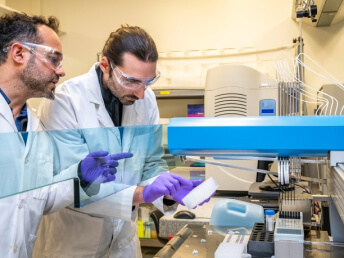For decades, our healthcare system has operated in a perpetual crisis firefighting mode – dedicating the vast majority of resources to developing treatments for manifest diseases, rather than promoting interventions that could preemptively prevent them from occurring in the first place.
This reactionary “sick care” model represents an increasingly unsustainable path as rates of chronic illnesses like heart disease, cancer, Alzheimer’s, and diabetes continue their alarming rise across the globe. With healthcare expenditures draining economies and standard of living, a fundamental shift is needed that promotes prevention as the bedrock of medicine.
At the vanguard of this preventative health revolution are physicians and researchers who argue that averting chronic diseases before they take hold should be healthcare’s number one priority and area of focus. Their work is amassing compelling evidence that the majority of chronic conditions can be heavily mitigated or delayed through personalized lifestyle interventions, metabolic optimization, removal of toxic burdens, and periodic multi-omic system resets and repairs.
According to the Centers for Disease Control and Prevention, eliminating the key risk factors of poor diet, inactivity and smoking could prevent at least 80% of all heart disease, stroke and diabetes cases, and over 40% of cancers. Other modifiable drivers like environmental exposures, psychological stress, and suboptimal sleep could account for substantial additional risk reduction.
Imagine the compounding benefits to human flourishing – both personal and economic – if the expensive tsunami of chronic diseases could be substantially stemmed at the source? A true “health” care system focused on equipping people with customized prevention programs would begin reaping positive returns on investment almost immediately.
And beyond simple avoidance of sickness, the most compelling opportunity may lie in proactively extending humanity’s healthspan – the number of years we remain highly functional with vitality and vigor. Emerging science illuminating biological repair mechanisms, regenerative therapies, and precision “tuning” of the body’s innate resilience systems could allow us to continually revitalize ourselves over time.
Preventative interventions combined with restorative periodic overhauls would mirror the modern model of automotive maintenance – keeping humans operating at a high level through routine system check-ups, replacements of worn components, and timely “software” upgrades. That contrasts with just driving a car into the ground and junking it when restoration is no longer viable.
To realize the promise of averting chronic disease and compressed morbidity, strategic long-term investments are required in research, testing, and implementation of prevention-first population health initiatives. Innovative payers and healthcare providers could reap immense financial incentives by covering interventions like continuous glucose/metabolic monitoring, advanced screening panels, lifestyle coaching, and tailored nutrition/fitness prescriptions for clients.
Comprehensive “system overhauls” could also be delivered periodically through judicious use of therapeutic stress exposures like calorie restriction, detoxification regimens, multi-omics longevity recalibrations, immune resets, and cellular rejuvenation protocols. All of these can already be pieced together for those willing to invest the effort, but scaling access through covered benefits and financial instruments would amplify impact.
The obstacles are more logistical than scientific – proactive healthcare requires a systematic reorientation of incentives, care delivery models and payment reform initiatives to emphasize investing in humans staying healthy rather than just treating downstream illnesses.
But the imperative for transformation is clear as the current sick care band-aid model buckles under its own unsustainable weight. Anchoring healthcare’s future squarely in prevention through personalized, precision interventions is not just the economically wise path forward – it’s an ethical obligation to protect humanity’s prospective health, longevity and flourishing in an era of unprecedented technological capability.

